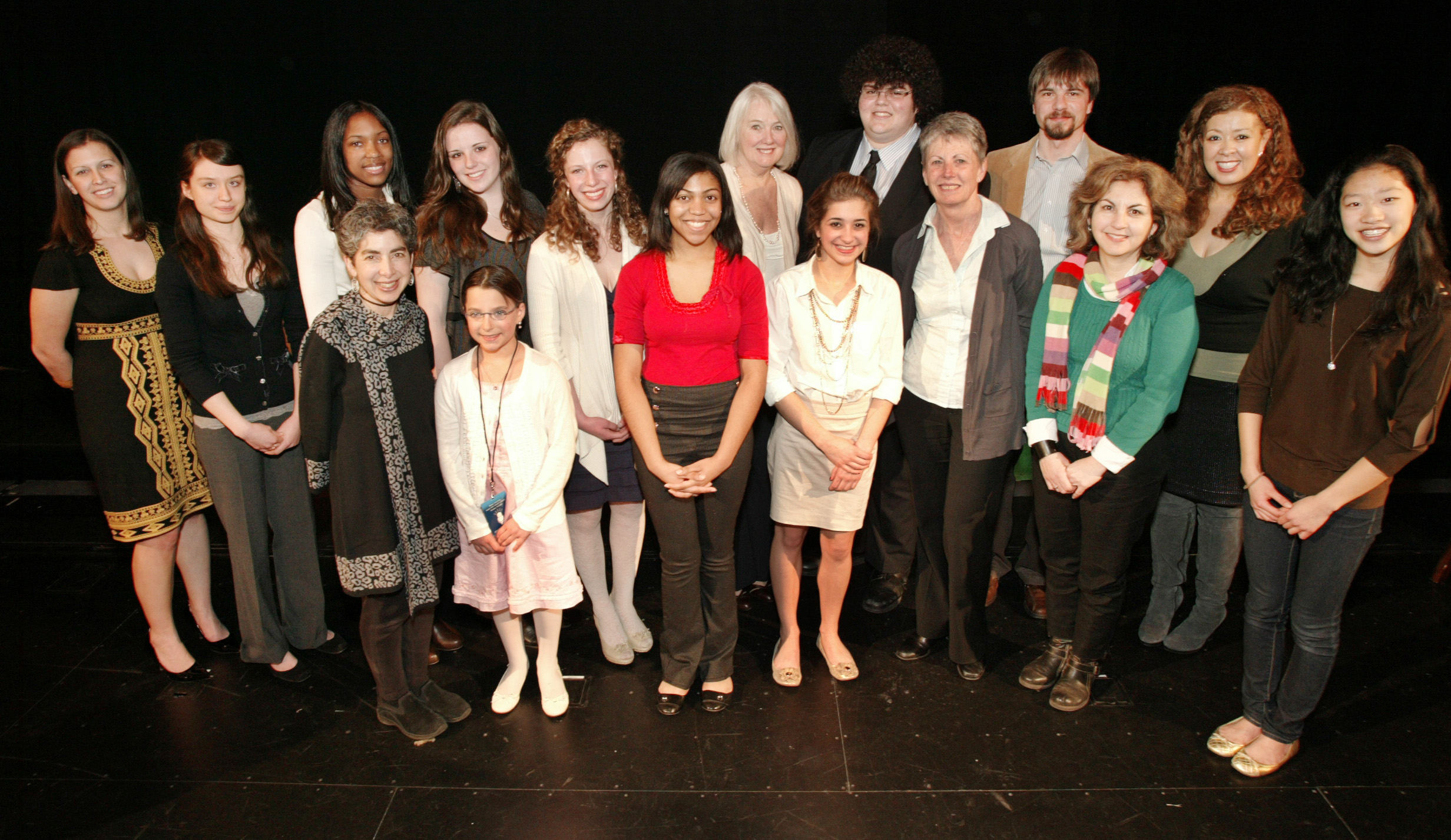Poetry Out Loud State Finals: Words in Action


Clarissa Lotson
Okay, confession time. While, on occasion, I do come across a poem that grabs my attention, it’s rare that I think much about poetry, or consider its place in the universe. But, after I attended the New Jersey Poetry Out Loud (POL) State Finals, held Thursday at the College of New Jersey’s Kendall Main Stage Theatre, my sense about the significance of poetry changed dramatically. In her introductory remarks, Sharon Burton Turner, Chair of the NJ State Council on the Arts, talked about some common myths – that poetry is dead, for example, or that poetry really doesn’t fit in today’s modern world. But, let me tell you, poetry is most definitely not just alive and kicking, it’s ready to run a marathon!
New Jersey Poetry Out Loud is part of the National Poetry Out Loud program, made possible by the National Endowment for the Arts (NEA) and the Poetry Foundation. The competition path begins in the classroom, where teachers encourage their students to select from the list of classic and contemporary works that POL provides and start preparing to perform their chosen poems. Individual school winners go up against other school winners in four regional contests, then two winners from each region advance to the state finals. State winners compete in April in Washington, DC, for the national prize.
In 2005, when the first state competition was held in New Jersey, 7 schools were involved. Now, just six short years later, the pool from which the finalists are selected has grown to enormous proportions. More than 16,000 New Jersey students, from 86 high schools statewide, participated in the New Jersey Poetry Out Loud program.
The event, produced this year by Discover Jersey Arts, was an absolute poetry love-fest. Every one of the speakers – including the State’s Lieutenant Governor/Secretary of State, College of NJ’s Art & Communications Dean, Director of Program Development at Playwrights Theatre of New Jersey, NJ State Council on the Arts Chair, and the 2010 Poetry Out Loud State Champion – spoke with equal fervor about the power of poetry.
It’s more than the strength of the written word, though, that makes this a remarkable program. Author Toni Morrison once said that it is “in the reading that we uncover the invisible ink - what is under, between, and outside the lines… hidden until in the right reader finds it”. And that seems to be what happens when students make these works their own. During the reading, and rereading, and practicing, and polishing the presentation, students discover “the invisible ink”, and much more.
When she introduced the first round of recitations, Sharon Burton Turner talked about the benefits of program participation for the students. “They discover skills and talents they didn’t realize they had,” she says, “and they find their own voices in the words of great poetry.” And NJ State Lt. Governor, Kim Guadagno, agrees. “For many of these students, competing is a life-changing experience.”
And, as more than one person said, regardless of the contest outcome, each of the participants comes out a winner.
Frank Mastroianni teaches at the Ocean County Vocational and Technical School Performing Arts Academy and talked to the audience about the impact that POL had in his school. There are the practical aspects, such as helping the students develop self-confidence and bringing together the entire school community around a common endeavor. And then there are the almost intangible benefits. “I just love thinking about the students – no matter where they are or what they’re doing – with poems in their heads,” he said. “They end up falling deeply in love with the poems they choose, and then they share them.”
That is what the competition is all about. I’d researched the POL program before I got to the event, and thought I knew what to expect. But, I was surprisingly spellbound as I watched and listened to the three rounds of recitations, and impressed by the variety of the poems the finalists chose to share. There were several nods to the classics – a pair by Edgar Allen Poe, two distinct renditions of Longfellow’s A Psalm of Life, and Sonnet 116 by Shakespeare; some anthem-like choices, such as James Weldon Johnson’s Lift Every Voice and Sing, and more than a few that were previously unfamiliar to me, but are now destined to be favorites, like Billy Collins’ Snow Day, the third poem performed by runner-up, Kristin Tsuo, and winner Clarissa Lotson’s riveting final poem, Song of the Powers, by David Mason.

I was captivated, too, by the camaraderie that had clearly developed among the students in this group, and by the poise that each demonstrated, both during their performances and while participating in a Q&A with the audience.
It was very clear – as so many had said throughout the day – how many things each student had learned from being a part of Poetry Out Loud.
